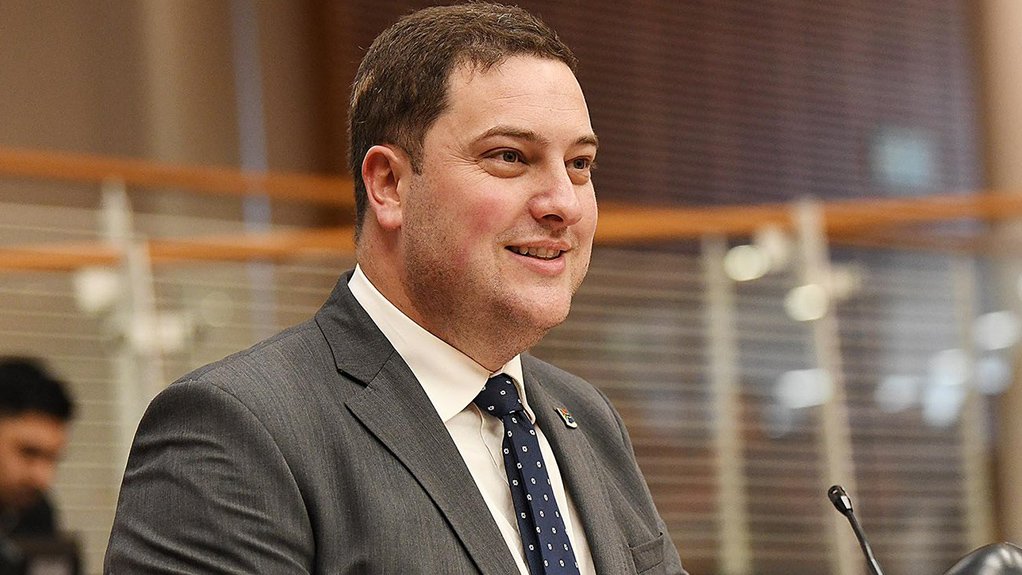Technology can be useful in fighting crime but will not remove the need for long-term interventions to address social issues underpinning the scourge.
This is according to Lizette Lancaster, crime hub manager for justice and violence prevention at the Institute for Security Studies (ISS).
This as the City of Cape Town is implementing new technology to fight crime, with R860-million being allocated over the next three years to safety and security technology, starting with the rollout of body-worn and in-vehicle cameras.
Lancaster said it's difficult to tell if the project's benefits outweighed the costs and added that technology came with pros and cons.
"Different types of crimes need different types of interventions. Technology such as this also requires the introduction of sophisticated data management and storage solutions, as well as training and change management," she said.
Lancaster warned that technology would not remove the need for long-term social interventions to deal with the scourge.
"Technology is a very useful aid if used correctly and with a human rights mindset at the centre. However, it will not address the underlying causes that lead to people committing crimes," she said.
As part of the roll-out, around 800 officers will be equipped with bodycams and dashboard-mounted cameras will be installed in 290 vehicles, said Cape Town Mayor Geordin Hill-Lewis.
"In the next couple of years, this technology will be standard across our safety services to make Cape Town safer. The dashcams are equipped with automated number plate recognition (ANPR) technology so officers will be alerted to wanted vehicles and outstanding warrants instantly in their vehicles," said Hill-Lewis.
"These devices are used widely around the world and have shown tremendous success. This is the first time they are being deployed at this scale for a government agency in South Africa."
Hill-Lewis added that the cameras are intended to increase "trust and accountability in the municipal police and law enforcement, as interactions with the public will now always be recorded".
"There is also global evidence which shows a steep drop in attacks on law enforcement officers after the introduction of these cameras," he said.
JP Smith, the mayoral committee member for safety and security, said the use of ANPR dash cams allowed officers to scan vehicles' licence plates while driving to check for any flags, which meant they could do targeted stops and, thus, more effective enforcement.
Body-worn cameras would enhance officer safety by increasing situational awareness through live-streaming and would serve as a deterrent to potential perpetrators.
They would also safeguard the public and City staff, particularly when claims were made against them, helping maintain transparency and accountability thanks to independent footage.
The City's investments over the next three years include R118.4-million on CCTV, R118-million on dashcams and bodycams, R22-million on drones and R10-million on gunshot location technology.
"Digital evidence is vital in the prosecution of offenders, and we are expecting the body-worn cameras on officers to provide crucial footage that can be used in court, ensuring a higher rate of successful convictions," Hill-Lewis added.
The technology should have been brought in long ago, believes Nyanga community police forum (CPF) chairperson Dumisani Qwebe.
"The township areas need this so badly," he said.
"For far too long, we have been labelled as a no-go area because of the level of crime taking place here. It's sad that daily residents are falling victim to crimes, and the perpetrators often don't get apprehended.
"The cameras and drones the City plans to roll out will most certainly see a decrease in crime in the area because that technology equipment will easily alert law enforcement agencies to act quickly."
Langa CPF chair Alfred Magwaca agreed, saying the rollout of the technology was for the benefit of the community regardless of how costly it may be.
"As much as people will say the money could be used for something else, it is for the good and safety of us all", he said.
"It will eliminate the fears people have to report crimes they may have witnessed."
CFPs in gang-ridden areas such as Manenberg and Hanover Park said the City of Cape Town should rather invest more in educational programmes and unemployment so that young people were not pushed towards a life of crime because they thought it was "an easy way to make money".
Manenberg CPF chair Vernon Visagie said, "We are always going to have this crime problem. This new technology being implemented is not going to work. These gangsters will outsmart the technology because they are going to see it as a threat to their crimes. And this is what the City is not understanding. Yes, we appreciate the efforts in trying to help, but it's a waste of money.
"We've already seen how cops are working with gangsters, so what is stopping them from alerting gangs to what the so-called new technology is picking up?"
Hanover Park CPF general-secretary Yaseen Johaar said only time would tell if the technology would be useful.
"We all want crime to come to an end. We dream of living in an area where no gunshots are going off every hour. But the reality of that is very blurry," Johaar said.
EMAIL THIS ARTICLE SAVE THIS ARTICLE
To subscribe email subscriptions@creamermedia.co.za or click here
To advertise email advertising@creamermedia.co.za or click here











